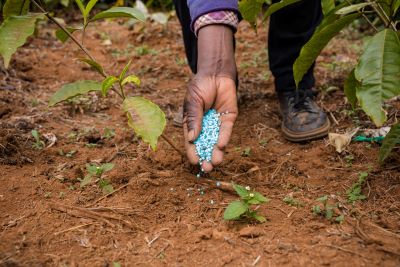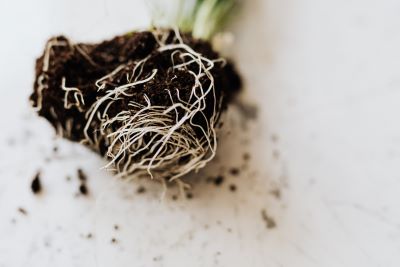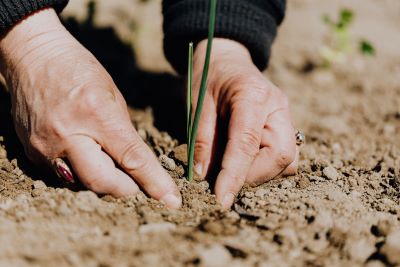Safely Handling Fertilizers: Top Tips for Proper Storage
When it comes to gardening and agriculture, fertilizers play a crucial role in enhancing plant growth and productivity. However, handling fertilizers requires a cautious approach to ensure safety and effectiveness. In this comprehensive guide, we will delve into key safety tips and proper storage practices for handling fertilizers, providing you with expert insights and practical advice to make the most of these essential gardening tools.
Why Worry About Proper Handling & Storage of Fertilizer?
Prioritizing the proper handling and storage of fertilizers is not only a matter of personal safety and plant health but also a testament to your commitment to environmental preservation and responsible gardening practices. By following these guidelines, you contribute to a more sustainable and harmonious ecosystem.

Can Fertilizer Go Bad from Improper Storage & Handling?
Yes, fertilizer can go bad over time if not stored and handled properly. Fertilizers contain nutrients that are essential for plant growth, but these nutrients can break down or degrade under certain conditions. Here are some factors that can contribute to fertilizer going bad:
Moisture: Exposure to moisture can cause fertilizers to clump or dissolve, leading to a loss of effectiveness. Moisture can also promote the growth of bacteria and fungi in the fertilizer, rendering it less useful or even harmful to plants. Moisture can also cause a chemical reaction in some fertilizer types as well as nutrient loss.
Excessive Heat: High temperatures can accelerate the chemical reactions within fertilizers, causing nutrients to break down more quickly. Storing fertilizers in a hot environment can reduce their potency and efficacy. Heat can also evaporate any liquid components in the fertilizer which can create a concentration of salt and nutrients, leading to an imbalance of the content which can affect the plants nutrition.
Direct Sunlight: Exposure to direct sunlight can heat up the fertilizer which can lead to the degradation of certain nutrients in fertilizers. It’s best to store fertilizers in a cool, dark place to prevent this.
Air Exposure: Fertilizers can react with the air, leading to oxidation and nutrient loss. Properly sealing fertilizer containers and minimizing air exposure can help prevent this.
Cross-Contamination: If fertilizers come into contact with other chemicals, they may undergo reactions that alter their composition. It’s important to store fertilizers separately from other substances to avoid cross-contamination.
Expired Products: Fertilizers have a shelf life, and using expired products can result in ineffective plant nourishment. Always check the expiration date before using any fertilizer.
Can bad fertilizer harm plants?
Yes, bad fertilizer can harm plants and have negative effects on their growth and overall health. Fertilizers that have degraded, expired, or been stored improperly can lead to several detrimental outcomes for plants by creating a nutrient imbalance and deficiency. It can also cause too much of one nutrient, creating a nutrient toxicity. It can stress the plants, contaminate the plant with chemicals, harm the soil, and even reduce the flowering or fruiting the plant can achieve.
To prevent harm to plants, it’s crucial to use high-quality, properly stored fertilizers that are appropriate for your specific plants and soil conditions. Regularly check expiration dates, store fertilizers in suitable conditions, and follow manufacturer recommendations for application rates and timing. By doing so, you can ensure that your plants receive the necessary nutrients for healthy growth without encountering the negative effects of bad fertilizer.
What Are Some Safety Tips and Proper Storage Practices for Handling Fertilizers?
Handling fertilizers demands attention to safety measures and careful storage to prevent accidents and maintain product quality. Here’s a breakdown of safety tips and storage practices:
Choosing the Right Personal Protective Equipment (PPE)
Wearing the appropriate PPE is paramount when working with fertilizers. This includes gloves, goggles, and protective clothing. These items shield you from direct contact with potentially harmful chemicals found in fertilizers.
Proper Ventilation
Always work in well-ventilated areas when handling fertilizers. Adequate ventilation helps disperse any fumes or vapors, reducing the risk of inhaling potentially hazardous substances.
Avoiding Skin Contact
Direct contact with fertilizers can cause skin irritation or more serious health issues. Minimize the risk by using gloves and washing your hands thoroughly after handling fertilizers.
Using Fertilizers in Recommended Concentrations
Overusing fertilizers can harm plants and the environment. Follow manufacturer guidelines for application rates to ensure optimal plant growth without causing damage.

Safe Mixing and Application
When mixing fertilizers with water, follow the recommended procedure to prevent splashes or spills. Apply fertilizers evenly and avoid excessive runoff to prevent contamination of water sources.
Storing Fertilizers Properly
Proper storage of fertilizer is important and essential for many reasons. It preserves nutrient integrity and allows the fertilizer to promote optimal plant growth. It also is important to avoiding harmful reactions with other substances, prevents environmental contamination, and ensures safety as well. Not to mention that proper storage can save you money from having to replace product and it extends the shelf life, as well as helps you comply with regulations.
Storing in Original Containers
Keep fertilizers in their original, labeled containers. This ensures you have accurate information about the product and its application instructions.
Dry and Cool Storage
Store fertilizers in a cool, dry place away from direct sunlight. Moisture can cause fertilizers to clump or degrade, reducing their effectiveness.
Secure Storage Area
Store fertilizers out of reach of children and pets. Consider using lockable cabinets or storage sheds to prevent unauthorized access.
Separate Storage
Keep fertilizers separate from other chemicals, especially those that might react with them. This prevents cross-contamination and potential chemical reactions.
Handling Spills and Accidents
Even with precautions, accidents can happen. Have spill kits on hand containing absorbent materials, gloves, goggles, and instructions for safe cleanup.
Disposal of Empty Containers
Dispose of empty fertilizer containers according to local regulations. Rinse them thoroughly and follow proper disposal practices to minimize environmental impact.
Educating Yourself
Stay informed about the fertilizers you’re using. Understand their chemical composition, potential hazards, and proper handling methods.

FAQs
Can I store fertilizers in my garage?
Yes, you can store fertilizers in your garage, but ensure the area is well-ventilated, cool, and dry. Consider using a dedicated shelf or storage unit to prevent accidental spills or leaks.
Can I store different types of fertilizers together?
It’s best to store different types of fertilizers separately to prevent potential chemical reactions that could reduce their effectiveness or create harmful compounds.
Is it necessary to wear gloves when applying liquid fertilizers?
Absolutely. Wearing gloves when applying liquid fertilizers helps protect your skin from direct contact with the chemicals. It’s an essential safety measure to prevent skin irritation or more serious health issues.
How do I clean up a fertilizer spill?
In case of a fertilizer spill, quickly put on gloves and goggles. Use absorbent materials like cat litter to contain the spill, scoop it up, and dispose of it following local regulations. Thoroughly wash the affected area with water.
Can I mix different fertilizers together?
Mixing different fertilizers can lead to chemical reactions that reduce their effectiveness or create hazardous substances. It’s best to avoid mixing unless the product’s label explicitly states that they can be combined.
Should I wear a mask when handling fertilizers?
While wearing a mask is not always necessary, it’s recommended if you’re working with powdered fertilizers or in an area with poor ventilation. A mask can provide an extra layer of protection against inhaling particles or fumes.
How often should I clean my fertilizer storage area?
Regular cleaning of your fertilizer storage area is important to prevent buildup of dust, moisture, or spilled materials. Aim to clean it at least once a season, but more frequently if you notice any spills or contamination.
Should all fertilizer be handled with care and caution?
Absolutely, handling all types of fertilizer with care is crucial to ensure both your safety and the effectiveness of the product. Fertilizers contain various chemicals that can be harmful if they come into contact with your skin, eyes, or if inhaled. Therefore, it’s important to follow proper safety measures when working with fertilizers.
How long should fertilizer last when properly stored and handled?
he longevity of fertilizer when properly stored and handled can vary depending on factors such as the type of fertilizer, its formulation, and the storage conditions. However, in general, well-stored and handled fertilizers can remain effective for a certain period of time.
Can I use fertilizers after they’ve expired?
Using expired fertilizers is not recommended. The nutrient content and effectiveness of the fertilizer may have degraded over time, leading to suboptimal results.
How can I tell if my fertilizer has gone bad?
Signs of bad fertilizer include clumping, foul odor, changes in color or texture, and inconsistent nutrient ratios. Always check for these indicators before use.
In Conclusion
Ensuring safety while handling fertilizers and maintaining their quality through proper storage practices is vital for both the success of your gardening endeavors and your personal well-being. By following these expert tips, you can confidently work with fertilizers, promote plant growth, and contribute to a healthier environment.
